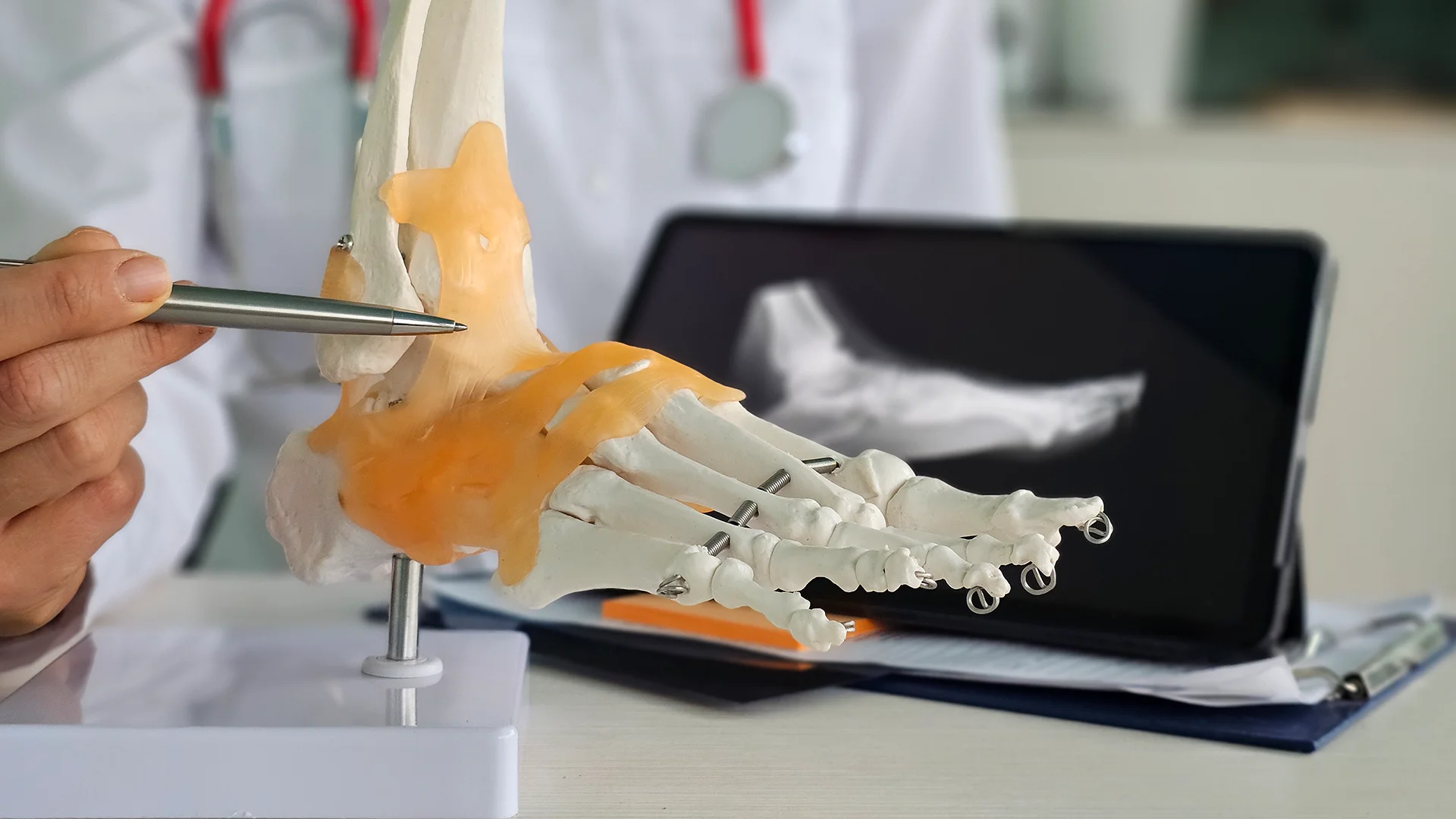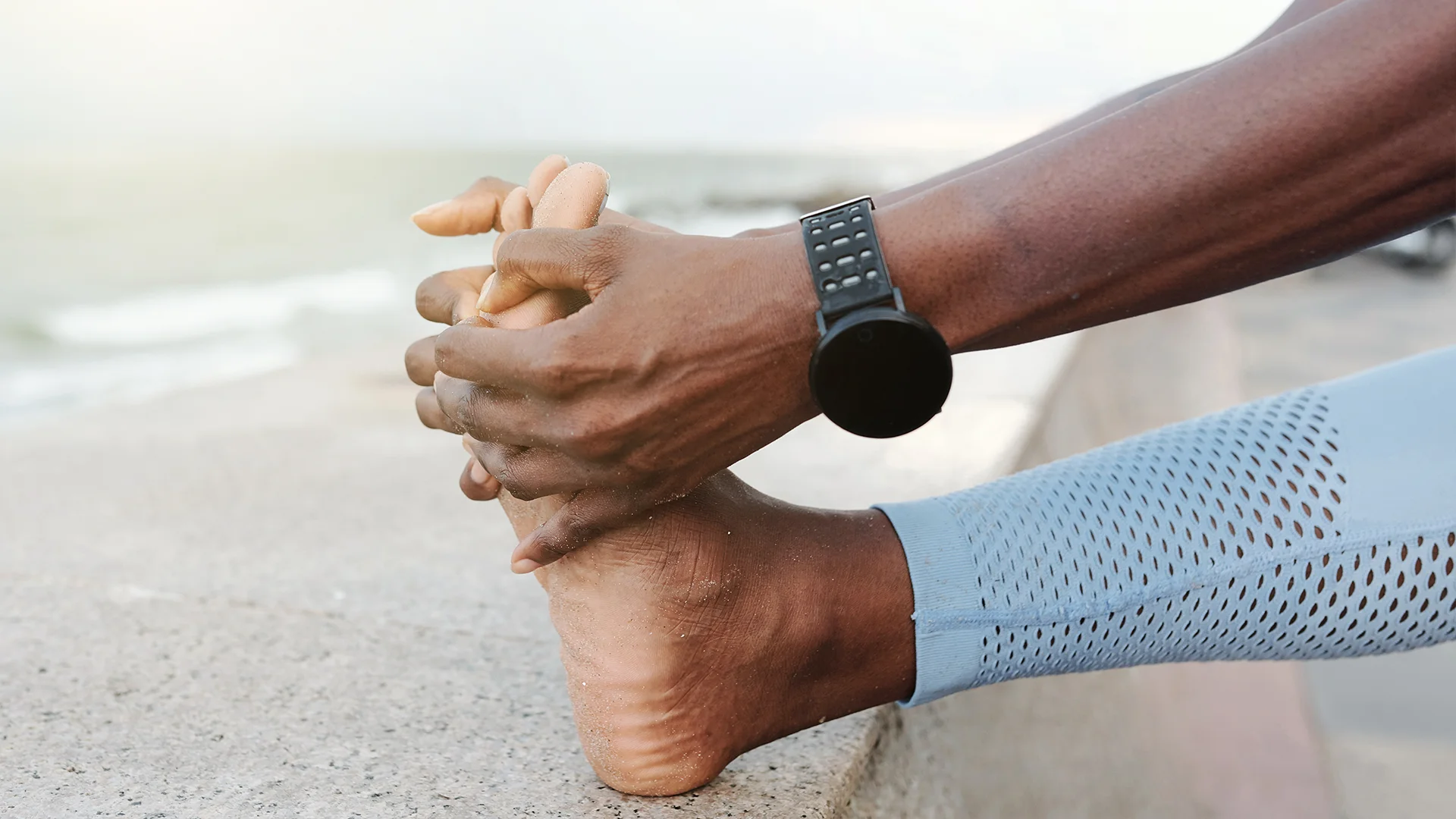

Shockwave Therapy
Shockwave Therapy
What is it?
Extracorporeal Shockwave Therapy, or ESWT, is a treatment that was originally used for treating kidney stones however its other uses soon became apparent. It is a non-invasive treatment that can be given in the outpatient clinic, no operation or anaesthetic is required. ESWT uses energy generated in a hand held applicator which is administered to the painful tissues.
What can it be used for?
ESWT can be used for painful problems affecting the Achilles tendon and for plantar fasciitis or ‘heel pain’. There is also evidence that it may be helpful for problems such as ‘tennis elbow’ and some forms of shoulder, hip and knee pain. It is often useful even if other therapies have failed.
Does it work?
The device uses pulses of high pressure sound or ‘shockwaves’ that are focused over the abnormal, painful tissue. The mechanical stimulation causes inflammation and this triggers the body’s natural healing response and increases blood flow to the area. There ia also evidence that it may stimulate growth factors which are important for repair and it may decrease pain signalling substances.
Does it hurt?
No. ESWT should not be painful and if you feel any discomfort during your treatment let the doctor know immediately. No anaesthetic is required and you may go home straight away afterwards. You will be able to drive afterwards.
How many treatments will I need?
Usually three treatments are given at weekly intervals. The treatments take approximately 10 minutes.
Will my insurance cover the treatment?
More and more companies are recognising the benefits of this treatment and will reimburse the costs however it is important that you check with your insurance company before starting treatment. Quotes for treatment can be provided for uninsured patients.
Case Study
Mr KJ is a 44yr old gentleman who had suffered from heel pain for over two years when he was seen at The Hampshire Clinic. His pain started after he sustained a direct blow under his heel and his history and examination were fairly typical for the diagnosis of plantar fasciitis. His pain was well localised on the medial aspect of his heel pad and was worse when he took his first few steps in the morning. The pain was affecting his work and recreational activities and after two years, having tried stretches with a physiotherapist and a shoe insert from a podiatrist he had seen no improvement. The appearances on MRI confirmed the diagnosis and after agreeing to enrol in the ASSERT trial he was given a course of three treatments with extracorporeal shockwave therapy.
‘Prior to the shockwave therapy I had been through many treatments, all to no avail. On a good day it would be at best stiff however if I had along day on my feet the next morning I couldn’t walk, it was that bad some days. During the treatment the foot felt quite strange as if something was happening to the heel. It was not painful, just odd. Having completed the three treatments I would say about six weeks later it felt very good. My wife commented on how she hadn’t heard me moan about my foot for ages! All I can say is now, some six months on, that it is very good and I am back running again on it, something that I had not been able to do for the last two years without being crippled the next morning. So my experience of the treatment has been a very positive one. I would strongly recommend this to someone with the same issues that I had.’ KJ 21/11/12
Further information
NICE, The National Institue for Health and Clinical Excellence has issued guidelines and information for patients who are considering undergoing ESWT treatment. Links to these documents can be found below.







